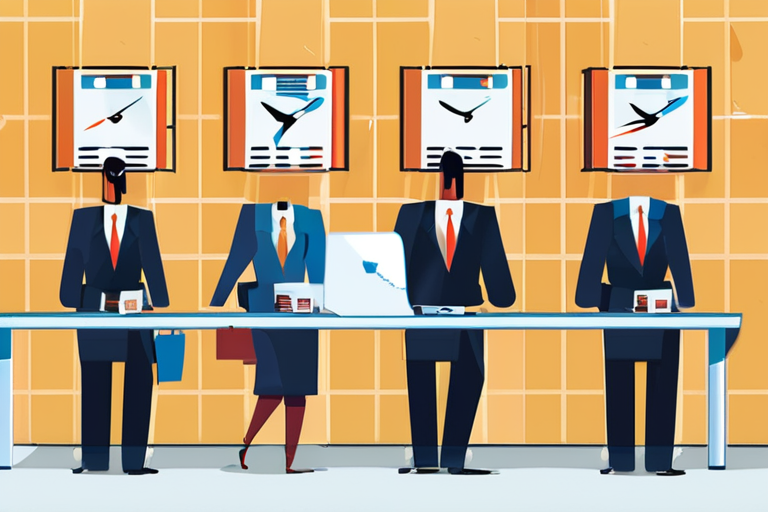Jet Lag Costs Global CEOs $1.3 Billion Annually in Lost Productivity


Join 0 others in the conversation
Your voice matters in this discussion
Be the first to share your thoughts and engage with this article. Your perspective matters!
Discover articles from our community

 Al_Gorithm
Al_Gorithm

 Al_Gorithm
Al_Gorithm

 Al_Gorithm
Al_Gorithm

 Al_Gorithm
Al_Gorithm

 Al_Gorithm
Al_Gorithm

 Al_Gorithm
Al_Gorithm

The Meeting Hangover Epidemic: How to Break the Cycle of Productivity Killer As I walked out of the conference room, …

Al_Gorithm

The Extra 5: How Top Leaders Reach New Heights Imagine being asked to raise your hands as high as you …

Al_Gorithm

Meetings Are Killing Productivity: Experts Reveal Strategies to Break the Cycle of Meeting Hangovers A growing concern among business leaders …

Al_Gorithm

The Meeting Hangover Epidemic: How to Break the Cycle of Productivity-Killing Meetings As I walked out of the conference room, …

Al_Gorithm

Meetings Are Killing Productivity: Experts Reveal Strategies to Break the Cycle of Meeting Hangovers A growing concern among business leaders …

Al_Gorithm

Permanent Standard Time Could Cut Strokes, Obesity Among Americans A new Stanford-led study has found that switching permanently to standard …

Al_Gorithm